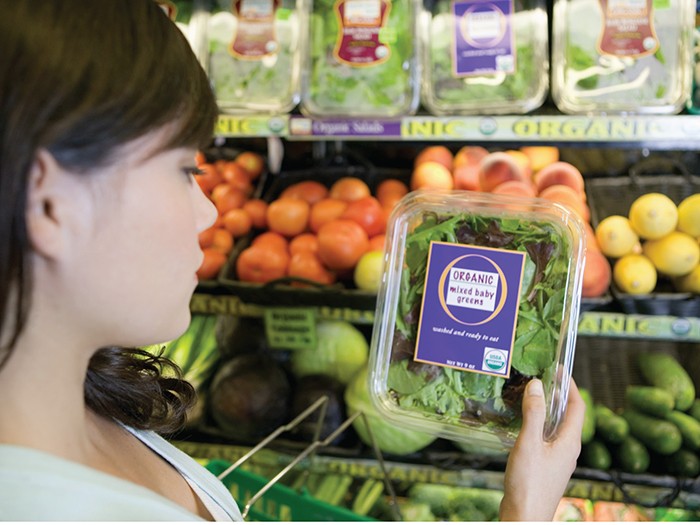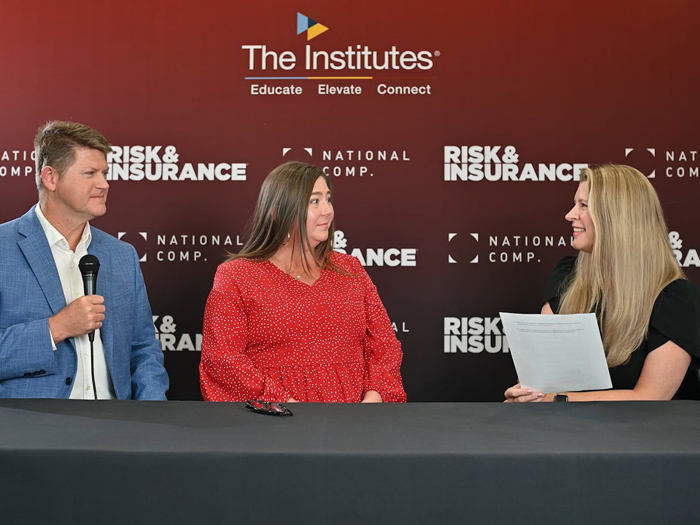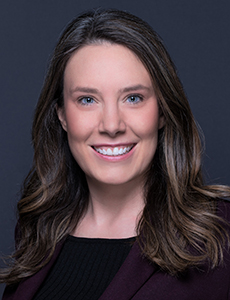Product Liability
A Call for Truth in Labeling

This past December, the California State Supreme Court overruled two lower court decisions and allowed a class action suit to move forward in state court against Herb Thyme Farms, accused of labeling a mixture of organically grown and conventionally grown fresh herbs as “fresh organic.”
While the case has yet to go before a jury, some see the court’s decision to permit the trial as opening the door to a wave of litigation in state courts for violations of what previously was perceived as a strictly federal regulatory framework.
At the heart of the court’s decision — and the dilemma facing insurers — is the question of intent. Herb Thyme Farms is arguing that the salient issue in the case is an interpretation of federal organic standards, and any deviation on their part is tantamount to misinterpretation.
Plaintiff Michelle Quesada argues that Herb Thyme Farms knowingly mislabeled their products, in violation of California’s Consumers Legal Remedies Act, unfair competition law, and false advertising law. The State Supreme Court ruled Quesada’s accusations deserve a hearing.
Herb Thyme Farms also argued that allowing suits in state courts would weaken the federal standards, but the court specifically negated that as well, stating, “State lawsuits alleging intentional organic mislabeling promote, rather than hinder, Congress’s purposes and objectives.”
“This is a consumer fraud case. The damages that plaintiffs seek are usually for alleged price differentials, or even the price of the product itself. They are not for physical harm,” said attorney Alan Lyons, a partner at Herrick, Feinstein LLP and co-chair of the firm’s Insurance and Reinsurance Group.
“The impact of the case is the court decisions. If the case is ultimately thrown out on the merits by a court decision, it could be helpful to mitigate the impact of this decision.
“The food companies have been asking the courts to pre-empt state law consumer fraud claims in favor of federal law. So, decisions that permit state law cases to move forward build a body of law that is not helpful for companies that are seeking a uniform body of federal law,” said Lyons.
Industry Impact
Glenn Drees, managing director of food and agribusiness at Arthur J. Gallagher & Co., thinks that while individual damages may be low, the classes involved could be quite large.
“There are two routes that these things generally take. One is injunctive relief, so ‘quit using that label’ would be the relief that they seek.
“And then the other is for damages, and that’s a wide open space that could be damages to everybody that’s bought the product … and the number could be a fairly large number. … I have to believe that is their intent now that the court said, ‘Yes, you can go ahead and sue them,’ ” said Drees.
David McNeil, principal at Edgewood Partners Insurance Center, thinks the impact will be more limited, and that instances of mislabeling — or intentional mislabeling — are extremely rare.
“It’s not worth it … whatever that little marginal short-term benefit would be, the long-term effects are so negative … [The food and beverage industry is] smarter than that.”
But if suits in state courts begin to weaken the federal standard, McNeil could see that changing.
“I do think you would have increased liability, substantial liability if you do start to have different states setting different standards,” he said.
That question of intent is important to insurers as well, because it goes to the heart of insurability.
“If they did it with intent, then it’s illegal and a non-insurable event. If it was done by accident … then it is going to be a covered event,” said McNeil.
It appears that the court is allowing the case go to a jury in part to determine that intentionality. But until such a determination is made, the insurers are on the hook for legal expenses.
“So you are going to have some initial coverage, initial legal defense, but as soon as that determination is done there will be a resolution of rights straightaway, and as soon as that determination is made they will stop,” said McNeil.
But while costs in each case may be limited by exclusions, those initial legal expenses can add up quickly if there are numerous civil actions.
“The Quesada decision may prompt a significant increase in consumer class action lawsuits alleging state law fraud and misrepresentation against businesses that use the ‘organic’ label,” Lyons said.
If they did it with intent, then it’s illegal and a non-insurable event. — David McNeil, EPIC Insurance Brokers
“Although fraud claims are typically excluded from insurance policies, there is usually coverage for defense costs until a final adjudication of fraud is issued by a court, by which time hundreds of thousands, or even millions, of dollars may have been incurred in defense costs,” said Lyons.
“As a result, insurers may seek to increase premiums to address the potential increased exposure to ‘organic’ lawsuits against insureds,” Lyons added.
Insurers may also “seek to tighten up the language of their fraud exclusions so as to more clearly and expressly avoid a duty to indemnify for a finding of fraudulent mislabeling,” he said.
Seek Out Coverage Options
Drees advises insureds to explore additional policies as well.
“The General Liability policy doesn’t respond unless there’s an assertion of bodily injury or property damage. There are some other coverages that may come into play such as product recall or product withdrawal coverage, and those policies are less standard so it would behoove a policyholder to determine whether improper labeling is a covered cause or loss,” said Drees.
He sees the possibility of a much broader impact, even if a jury ultimately sides with Herb Thyme Farms.
“Everybody consumes food, and labels are important. We’re more concerned now about what we put in our bodies than we were 10 years ago. So it seems to me it’s just an area that’s rich in opportunity for legal action,” he said.
“The problem is, in my opinion, there’s just not enough inspectors,there’s not enough enforcement people to get to all the places … so the void is being filled by lawsuits.”
But despite a potential increase in liability, double-digit growth in organic sales means companies will be unlikely to move away from such labeling.
“There’s always this constant interplay between the sales and marketing guys and the corporate attorneys. The sales guys want to say, ‘This is the greatest product that there ever was,’ and the legal people want to dial it back so they don’t unnecessarily invite litigation,” said Drees.
Litigation like Quesada may actually foster growth.
“I don’t think it’ll damage the sales growth. In fact, it could have the opposite effect and actually help growth, because consumers might be more confident that what they’re buying truly is organic; and that there are consequences for people that try and pass something off as organic that isn’t,” said Drees.














